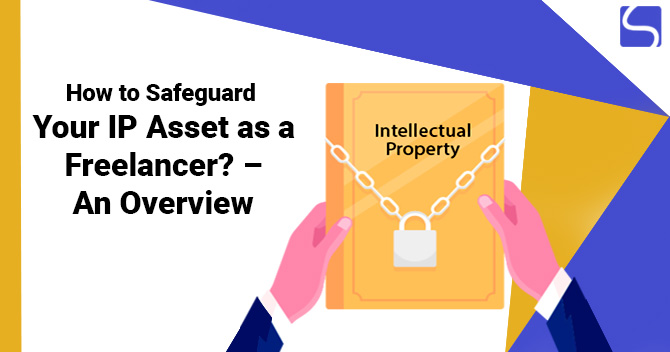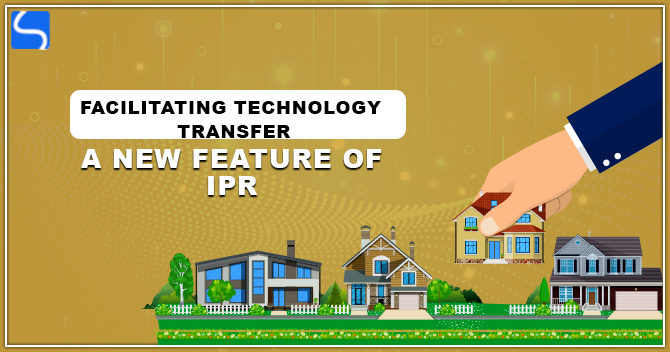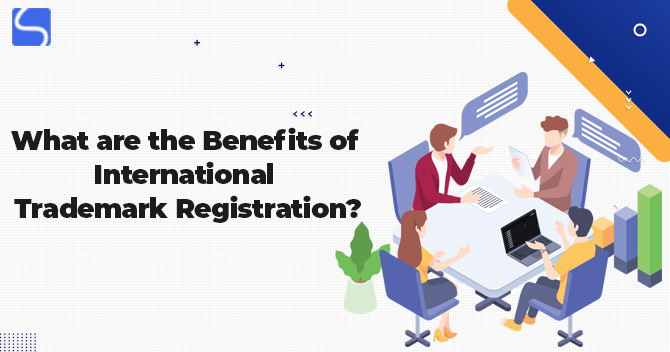How to Safeguard Your IP Asset as a Freelancer? – An Overview

Karan Singh | Updated: Oct 29, 2021 | Category: Intellectual Property
In this ongoing Covid-19 pandemic, the work from home culture has rapidly grown, and now almost every company adopt this method to work remotely, and the freelancing business, which is highly related to the gig economy, has also grown in this pandemic. Some guesses predict that gig employers represent 35% of the United States workforce in the year 2020, up from 14%-20% in 2014, and such figures are only anticipated to grow in the upcoming years and if you also want to join this bandwagon, make sure that you are aware of IPR (Intellectual Property Rights) that a freelancer owns in their work. So in this write-up, we will inform you on the importance of Intellectual Property (IP) for any freelance and how to protect your IP asset as a freelancer.
Table of Contents
What is the Meaning of IP and its Importance to Freelancers?
Before we discuss different ways to protect IP asset as a freelancer, let’s first understand the meaning of IP. IP or Intellectual Property refers to any creations that come out from human intellect such as inventions, designs & symbols, literary & artistic works, names & images used in commerce. Intellectual Property can be safeguarded via Trademarks, Patents, Design Registration, and, most important, Copyright Registration. To protect your IP asset as a freelancer, you must be highly concerned with Copyrights as the freelance workforce as it involved with creative areas, be it technical, literary, or artistic work such as craft, song, drawing, writings, computer programming, software development, etc. which are all subject to Copyright.
You must know that when an individual hires a freelancer to work on a certain project, that individual will not own the IPR created by the freelancer during their project unless specifically given away by the freelancer.
According to the Copyright Act, 1976, the Copyright owner is generally the people who created the work with an exception that Copyright for “Work-for Hire” belong to the worker in simple words, the rights in any work created by the worker or employee under their ambit of employment is automatically owned by the employer. But, this exception doesn’t apply to the freelancers as they aren’t employees. Rather, they are independent contractors.
The freelancers are eligible to hold Copyright in work produced by them hence, making them the owner of their creation. That fundamentally means they have the authority to do anything with their creation.
Different ways to protect IP Asset as a Freelancer
The best way to protect IP asset as a freelancer is by never engaging with a client without a written contract and including a detailed ownership clause in your contract. Following are some vital questions to ask while structuring an ownership clause in a contract:
- Do you want to give reissue rights or just single time publication rights?
- Do you want to grant universal rights in IP or only be limited to a particular region?
- Do you want to give away your IP for perpetuity, or do you want to allow your client to use it for only a particular time?
- Do you want to license the IP to your client, and do you consider when the ownership revert will be to you?
- Do you want your customer to cite you as the author or creator of the things you created for them?
Following are some other steps to protect IP asset as a Freelancer:
- Don’t Disclose Too Much: Always try not to disclose such information. Generally, it happens when you try to impress your customers, you give your vital information to them, and the client might just run off and implement your ideas themselves. Just ensure you deliver only those details to your client that is vital to protect the deal.
- Know Your Client: It is obvious, but when you are looking for work urgently, you may skip this most obvious measure, which is to conduct detailed research on your client. There might be possibilities that your client has the habit of copying or stealing Intellectual Property, so you have to be aware.
- NDA: NDA (Non-Disclosure Agreement) is a great business tool that must be deemed to safeguard IP. If a capable customer wants to discuss strategies, plans or requires your work samples before formalising a contract, you shouldn’t be doubtful in getting an NDA in place to make sure that your innovative creation is not misused. Ensure that the NDA[1] is signed by both, and you mark anything you send to your client along with a note stating “Confidential”.
What can a Freelancer do if the IP gets stolen?
For freelancers, stealing IP is not something uncommon, and if you are a freelancer for long, there will always be a high chance that someone will attempt to use your innovative creation without your permission or without giving you any credits. Whenever you find yourself in this condition, then you have to raise the matter slowly. It’s possible that the individual committed IP theft without intending to do so. If you ask the person who committed the theft to stop it doesn’t work, and the individual is your client, then you can send a letter or a mail, with the attached copy of a signed contract between both of you as a reminder of what was agreed upon.
When your pleasant gestures don’t seem to show any positive outcomes, then we suggest it’s time that you send a Cease and Desist Notice to the violating party and show them your intention to take legal action if they don’t discontinue their unpleasant activities. Even if you don’t plan to sue the person who stole your IP, then it will motivate them to do the same in the future. If that doesn’t get their attention, it is probably time to look for legal proceedings.
Conclusion
If you desire to become a full-time freelancer, remember that it comes with great risks as there will always be attackers waiting to attack your rights. You will face the condition where a client might be unwilling to pay or trying to steal your innovative idea, but you can glide through all the odds and be that bright star if you remain active and inform yourself about IP and different ways to negotiate ownership rights with a client. If you read all the ways to protect your IP asset as a freelancer, as we mentioned above, then you will never be an easy target for attackers or fraudsters.
Read our article:How to Protect Your IP in a Gig Economy?














